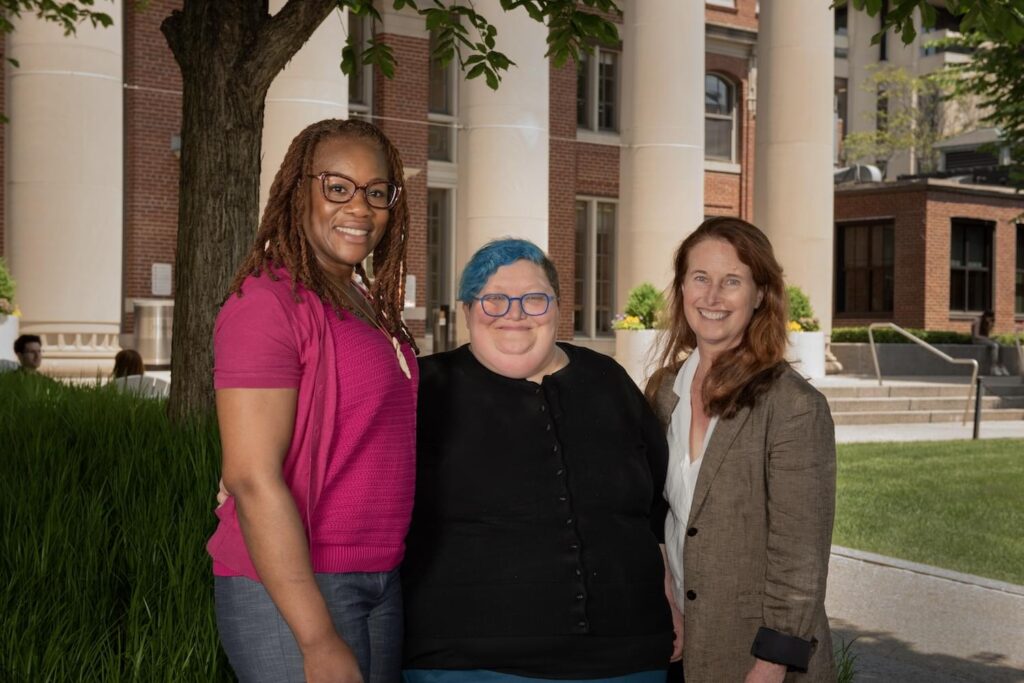
To reduce anti-fat bias in medical care, three members of the Brigham community—Janet Rich-Edwards, ScD, MPH, Mara Hampson, and Chioma Tomlinson, PA-C—are spearheading a project called “Stop the Stigma! Trauma-Informed Care for Patients with Large Bodies.” The trio won the Brigham’s 2023 BRIght Futures Prize, a $100,000 award to develop a course on fat stigma for healthcare workers and patients to improve care for people with large bodies.
“Anti-fat bias is widespread and can cause lifelong trauma,” says Rich-Edwards, director of research for the Division of Women’s Health. “Unwittingly, medicine can retraumatize individuals living in larger bodies, leading to poor clinician-patient communication, inadequate care, avoidance of healthcare, and poor health outcomes.”
With this funding and the input of clinicians, community members, and fat advocates, the team is creating an e-course for clinicians, clinic staff, and patients to raise awareness about anti-fat bias in society and teach a weight-inclusive approach to care. They will test the course with Harvard Medical School students and in primary care clinics and make this resource freely available on an open-source portal.
A bright future is where weight stigma has no place in the exam room, where all patients feel safe to access care.
Chioma Tomlinson, PA-C
“Our hope is by teaching healthcare providers and staff about how anti-fat bias and weight stigma affect access to equitable healthcare, we can improve patients’ ability to meet their healthcare goals without subjecting them to traumatizing experiences or prejudice,” says Hampson, an administrative assistant in the Division of Women’s Health.
Tomlinson, a physician assistant in primary care who also practices obesity medicine, notes the Brigham’s commitment to health equity is a driving factor in this work. She says, “A bright future is where weight stigma has no place in the exam room, where all patients feel safe to access care.”

